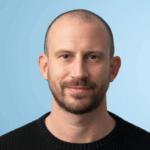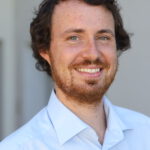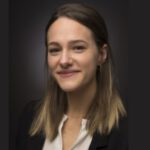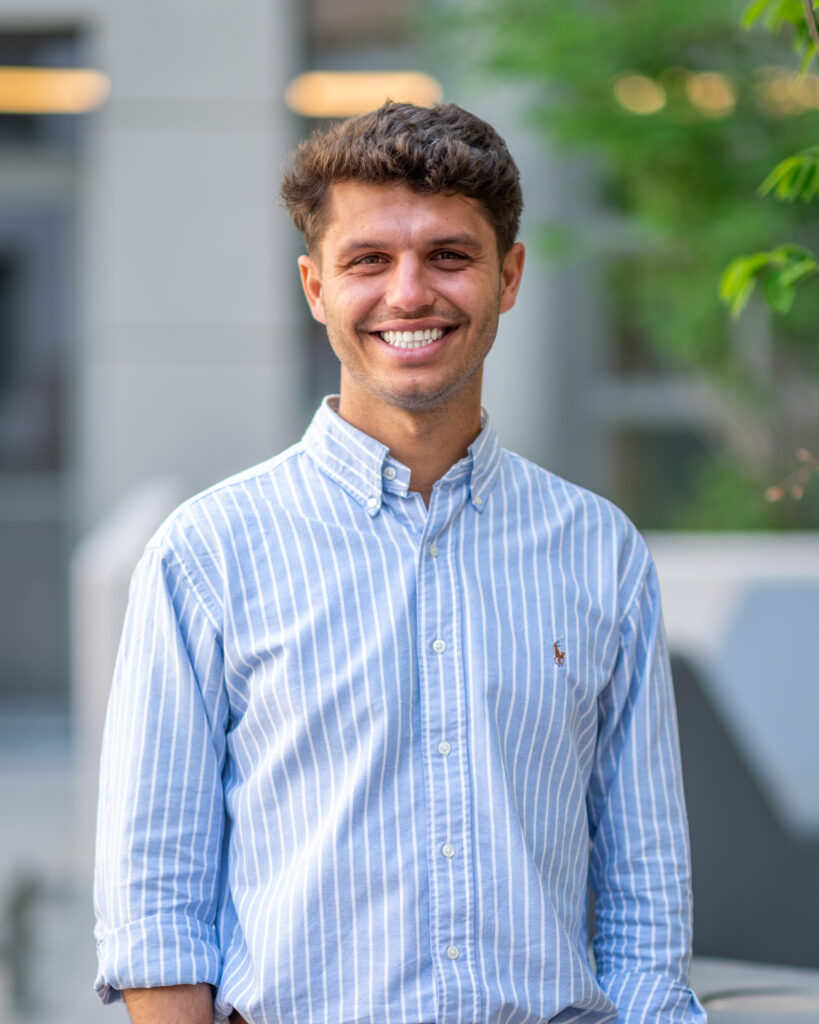SEEP Graduation
Cohort
Career
SEEP Alumni Story | May 20, 2025
Otto Luis Barnert
Changing systems through practice
When Otto Luis Barnert reflects on his path, it feels less like a straight line and more like a carefully navigated map. Drawn across continents, disciplines, and dilemmas. He grew up across Zanzibar, Bosnia, Kosovo, and South Africa, raised in the context of development missions and post-conflict reconstruction. Today, five years after graduating, he’s based in Paris, working at the front lines of climate finance as Corporate Climate Solutions Lead at Removall Carbon, where he helps corporations invest in community-rooted carbon removal projects.
The distance between those two worlds—one shaped by early exposure to global inequality, the other by navigating complex climate policy frameworks—is bridged by a deep commitment to critical thinking and impact. After completing a bachelor’s in political science in Vienna, Otto joined the SEEP master’s program at WU, graduating in 2020. “I had always stood with one foot in politics and one in economics,” he says. “SEEP helped me bring those two worlds together—and to see economics not as a fixed science, but as a field of competing ideas and structures.”
Vienna, Otto says, played a key role in shaping this phase of his life. Having spent time across multiple continents, he found in the city a rare kind of calm. “Vienna gave me space to think, to get lost, to read, to argue, to waste time without wasting it. That’s a luxury.” He highlights the accessibility of the city, the affordability of student life, and the diversity of perspectives he encountered at WU as essential parts of his journey. “It was a safe space, not just academically, but personally. I had time to explore ideas deeply and connect them to my own story. I don’t think I could’ve done that in many other cities.”
His master’s thesis explored how companies communicate purpose internally, but stepping into the job market during the pandemic forced a deeper reckoning. “That period pushed me into a kind of life crisis. I was full of radical ideas and theoretical tools—but the real world didn’t have a clear place for them.” A stint doing fieldwork in Mexico was followed by a project management job—found through a SEEP alumni connection—working on carbon-financed water access in Uganda and India.
That experience led him into the world of carbon markets, where he now helps develop and finance projects ranging from biochar and reforestation to renewable energy and water preservation. He works within voluntary markets as well as frameworks like Article 6 of the Paris Agreement. “I try to be like a Robin Hood in a suit,” he says. “Bringing each euro I can into protecting ecosystems and supporting communities—with accountability and transparency.”
Otto is quick to point out the contradictions of the sector. “It’s easy to get lost in the sauce, to enjoy the salary and the title and forget why you started. That’s why SEEP matters. It trained me to ask better questions and gave me the critical lens to see where sustainability becomes performance.”
He believes more people with that mindset are needed inside systems they might once have critiqued. “Protesting from the outside is important. But changing things from within, by negotiating, bridging, bringing in unheard voices, that’s where real transformation begins.”
His SEEP cohort, he says, remains a moral reference point. “We ended up doing very different things—consulting, analytics, grassroots work—but we still check in. Sometimes just to ask: ‘Did I go too far? Am I still grounded?’ That kind of peer community is rare.”
To current and prospective SEEP students, Otto’s advice is simple: embrace the uncertainty. “Take your time. Waste time. Be anxious. Think deeply. You will work a lot later—so use this time to explore.”
He’s adamant that SEEP is not the easy path. “But it’s the right one. It challenges your worldview. It forces you to confront yourself, and that’s the best preparation for everything that comes next.”
In a space often caught between urgent ambition and market incentives, Otto’s story reminds us that critical thought and practical impact don’t just coexist, they strengthen each other. “We don’t have all the answers,” he says. “But SEEP teaches you how to find the right questions and how to keep asking them, even when things get complicated.”
Author: Stefan Salcher
You might also like to read

Sebastian Linder
Sustainability Expert
From SEEP to the Vienna Economic Chamber. Sebastian Linder shares how he built a sustainability program from the ground up and turned quiet beginnings into a city-wide initiative.

Roman Hausmann
Researcher
From juggling lectures to shaping the next generation of critical thinkers, Roman Hausmann shows how research and teaching can become powerful tools for real-world transformation.

Stella Eckl
Consultant
At EY denkstatt, Stella Eckl works where business meets transformation. She shares how consulting can be a platform for change.

